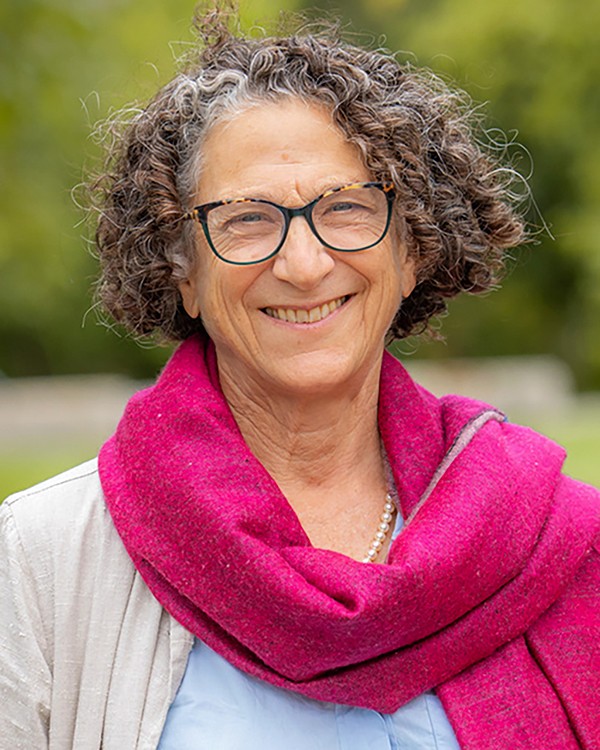Visiting lecturer to explore data privacy protection
By Kelly Merchan
Cynthia Dwork, a computer scientist at Harvard University and pioneer of modern data privacy, will present three public lectures at Cornell May 5-7 as part of the University and Messenger Lecture Series.
The Messenger and University lectures are the highest recognition of scholarship awarded by Cornell. Each lecture will take place in G-01 Bill & Melinda Gates Hall and will be livestreamed. They are co-sponsored by the Office of the Dean of Faculty and the Center for Data Science for Enterprise and Society.
Dwork’s visit to Cornell will showcase how theoretical computer science can place societal problems on a firm mathematical foundation. A cornerstone of Dwork’s work has been the development of differential privacy – a mathematical technique that has influenced data privacy protection for consumers at major companies such as Apple Inc. and Google and patients at medical clinics across the country.
“Of Cynthia’s many foundational contributions, her formulation of differential privacy has had impact far beyond what might have been originally hoped for, as it even provides insights into the nature of scientific discovery in general,” said David Shmoys, director of the Center for Data Science for Enterprise and Societyand the Laibe/Acheson Professor of Business Management and Leadership Studies in Cornell Engineering’s School of Operations Research and Information Engineering.
For her first lecture, “Differential Privacy and the U.S. Census,” Dwork will explore how different methods of statistical data analysis can either anonymize, restrict or protect data. She’ll use as a case example the 2010 U.S. census, which failed to protect the confidentiality of constituent data. The lecture will take place May 5 at 3:45 p.m.
In the second lecture, “From Algorithmic Fairness to Outcome Indistinguishability,” May 6 at 11:45 a.m., Dwork will consider how computer scientists can better evaluate algorithms they build by providing a conceptual approach to fairness in addressing issues such as ascribing probabilities to a nonrepeatable event. This talk is co-sponsored by the Cornell Ann S. Bowers College of Computing and Information Science’s Computer Science Colloquium Series.
On May 7 at 1:30 p.m., Dwork will deliver her third lecture, “Springboards,” providing a technical presentation on differential privacy, outcome distinguishability and exploratory data analysis.
Dwork received the National Medal of Science in January for her contributions to the field of computer science and secure public-key cryptography. Prior to joining Harvard, she worked for more than 30 years in industrial research with IBM and Microsoft.
Shmoys said: “Cynthia has demonstrated remarkable vision in creating key theoretical abstractions that allow important computational phenomena to be reasoned about formally, and thereby guide the development of the resulting computational infrastructure.”
Media Contact
Get Cornell news delivered right to your inbox.
Subscribe

